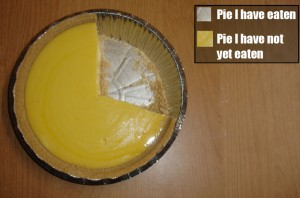For this session I’d like to talk about or brainstorm other sorts of assignments that can take place across campuses.
The last two times I’ve taught my Intro to Digital Humanities course, in 2011 and in 2014, I included an assignment that responded to Mark Sample’s 2011 blog post, “The digital humanities is not about building, it’s about sharing.” The purpose of the assignments was to get students in my class working on something with students in other classes, at other universities. With digital technologies, there’s no longer a reason to pretend that the only class in the world reading this book. We can reach out to others and work with them on interpreting it or making a response to it.
The digital humanities, in other words, transforms not only our research but our learning.
In 2011, the resulting assignment was a collaboration with Mark, Zach Whalen, Erin Templeton, and Paul Benzon. We asked our students to re-network House of Leaves. That’s a fancy way of saying, we asked them to re-create the forums that accompanied the launch of the book.
In 2014, Zach and I decided we’d like to ask our students to create media objects for every page of House of Leaves. The result was A Million Blue Pages, a collaboration with Chuck Rybak, Mary Holland, Jeremy Douglass, Paul Hurh, and others.
Another good example of a cross-campus teaching project is Matt Gold and co.’s Looking for Whitman.
Again, for this session I’d like to talk about or brainstorm other sorts of assignments that can take place across campuses. How can we get our students talking to/working with one another? I imagine breaking into small groups and batting around ideas during the session and then presenting to the other groups.


